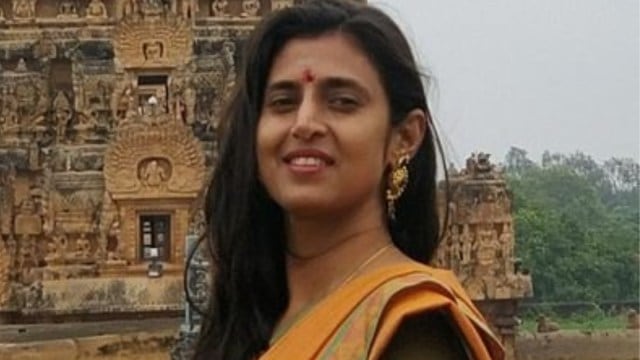Stay updated with the latest - Click here to follow us on Instagram
Days after remarks ‘critical’ of Telugu community that earned court’s ire, actress Kasthuri arrested
The actress's comments during a speech at a Brahmin meeting early this month provoked widespread backlash.
 South Indian actress S Kasthuri. (File)
South Indian actress S Kasthuri. (File)South Indian actress S Kasthuri was arrested by Tamil Nadu police on Saturday evening from a guest house owned by a film producer in Hyderabad, following allegations that she made inflammatory remarks about the Telugu community.
She will be brought to Chennai and produced before a magistrate court on Monday, police officials said.
The arrest comes days after the Madurai Bench of the Madras High Court dismissed her plea for anticipatory bail, citing the nature of her remarks.
According to police officials, Kasthuri was not at her Chennai home and her phone was switched off.
Her remarks, delivered during a speech at a Brahmin meet early this month, had provoked widespread backlash. A police complaint against her was filed by a member of the Naidu Mahajana Sangam State Executive Committee, citing offences under several sections of the BNS Act along with provisions from the IT Act.
According to the complaint, she allegedly said that Telugu people, who “came to serve the wives and courtesans of Tamil kings” only 300 years ago, now falsely claimed Tamil identity even as the Brahmin community had been denied the identity of Tamizhian. After a public outcry, she issued a public apology, clarifying that her remarks were intended to address only certain individuals and not the Telugu community at large.
The court had, however, taken a critical view of her remarks. Justice N Anand Venkatesh, who was presiding over the case, said her comments painted an entire community in a negative light, irrespective of any qualifications she may have later issued.
Observing that her remarks carried undertones of divisive rhetoric, the court emphasised the need for care in public statements, particularly in the era of social media where words can rapidly gain permanence and reach. “The ability to speak freely,” the judge said, “should not be misused to spread hatred or cause communal disharmony.”







